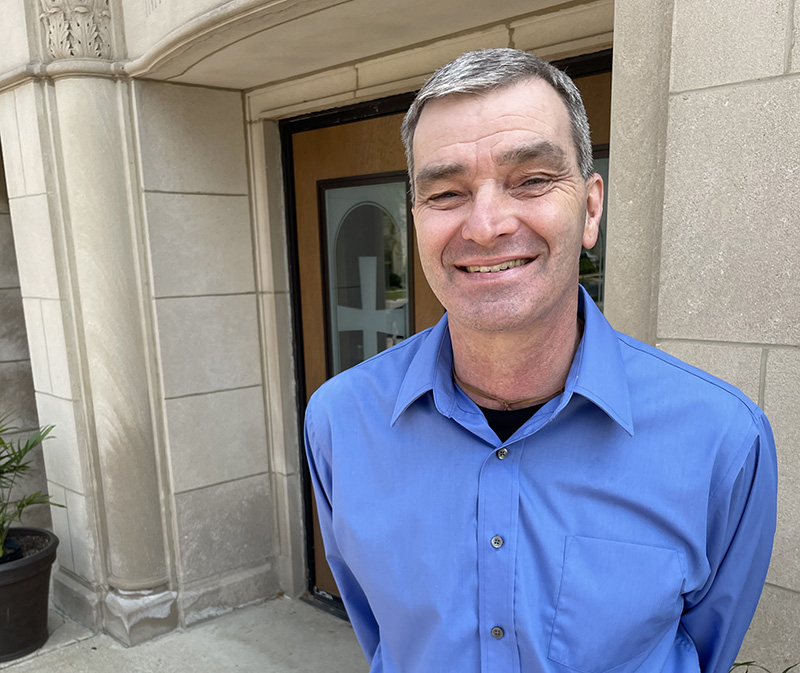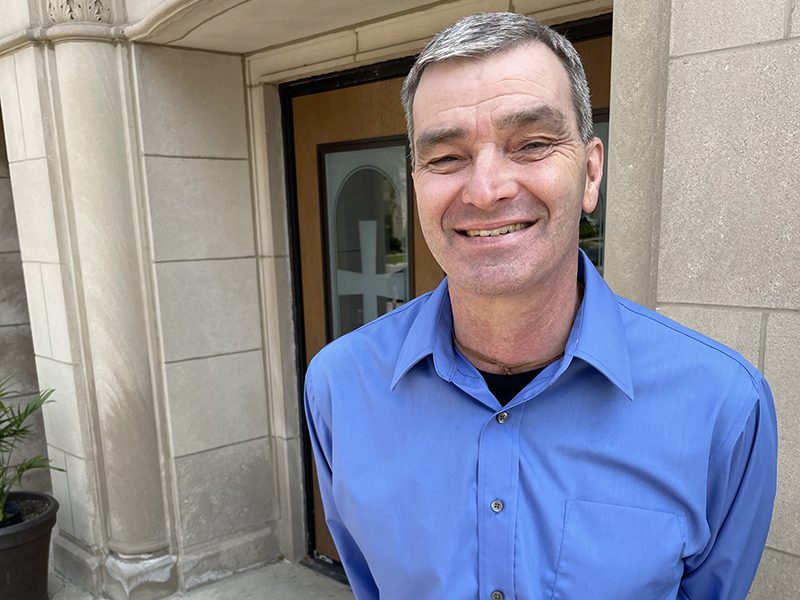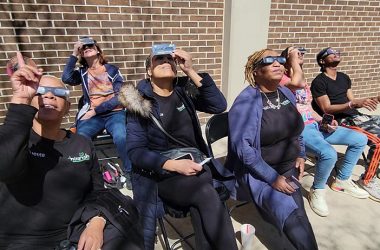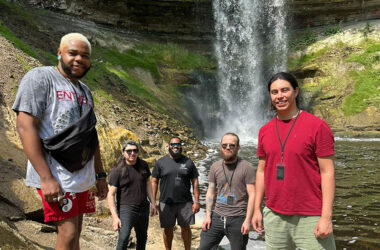
Six years ago, the Archdiocese of Chicago embarked on a restructuring plan called Renew My Church which saw it consolidate dozens of Catholic parishes in the region, reducing the total number by more than 100.
Locally, in November 2022, six Catholic churches merged into two. St. Anne in Hazel Crest, St. Emeric in Country Club Hills, and St. Joseph in Homewood are now combined as St. John Neumann parish based in Homewood.
St. Lawrence O’Toole in Matteson, St. Irenaeus in Park Forest, and Infant Jesus of Prague in Flossmoor merged, with the new church called St. Veronica and based in Flossmoor.
John McNichols is the director of lifelong faith formation at St. Veronica, and he is also vice chair of the Chicago Archdiocese Pastoral Council, an advisory board to Cardinal Blaise Cupich. He is also a seminary student who is on track to be ordained as a Catholic deacon in 2025. McNichols has observed the Renew My Church initiative since its rollout.
What was your first reaction to the Renew My Church plans?
There were a lot of unknowns, but the way they presented it, I was never worried. I was excited. I saw our church hierarchy taking the country club membership out of church and bringing it back to discipleship.
You don’t just belong to this community, you believe in Christ. You believe in his resurrection. You believe in hope. You believe in everything that he’s taught us, and this is what we have in common. It’s not the building we have in common. We are more than the building. When the church started, they didn’t even have a building.

What has been parishioners’ reaction to the parish merger at St. Veronica?
This community, compared to others, is paradise. There was a lot of sand and rocks being thrown (at other parishes). “We don’t do it like that.” “That’s my pew.” “I don’t go to a 7:30 Mass.” “My children were baptized here.” I’m not making light of these, but they are the reasons people were upset.
Another worry was, “I’ve worked here forever, and now what am I going to do?” For full-time employees, the archdiocese tripped over itself to find employment, and there was plenty of employment as the dust was settling.
Can you explain why the name changed? Why not just keep it as Infant Jesus of Prague, where the parish is now located?
People didn’t understand the name change. “Why does it have to change?” Canon law states that when a community is suppressed but another one grows in its place, it cannot use the same name. This is considered a new community now. Of course we’re going to make it our own name.
The degree at which people express their faith is directly relative to how deep their faith is founded in themselves. The name should not mean what it’s meaning to them. A name is identity and I get that, but first and foremost the identity is “beloved child of God.”
People will latch on because they feel they are living their faith through the name of a community, and it’s those people who I’m called to reach out to, to help them understand how much deeper their faith ought to be and how much deeper their faith can be.
That’s my position as coordinator for lifelong formation. The person who says it’s about the name or, “That’s my pew,” their faith has stopped. It’s not flourishing anymore. My job is to give them opportunities to find out why, and to give them opportunities to get that faith to flourish.
How can you provide people with those opportunities?
With more conversations like this one. With conversations that happen inside church buildings and outside, too. That’s why we started the Fire and Faith series, where we share around the fire pit out back. And not just here — conversations off campus too. That’s how we’re going to increase numbers.
Jesus said up on the cross, “Forgive them, father, for they know not what they do.” He didn’t just stop at, “Forgive them.” He added that second part, and that’s what I’m after.
People haven’t been asked the right questions. We can’t assume that just because they’re not coming around that they don’t want to. Mercy is not just helping someone in need. It’s identifying what that need is.
I’m humbled that God thinks so much of me that he’s given me that gift to identify that, and the boldness to go and ask someone something, and be vulnerable.





